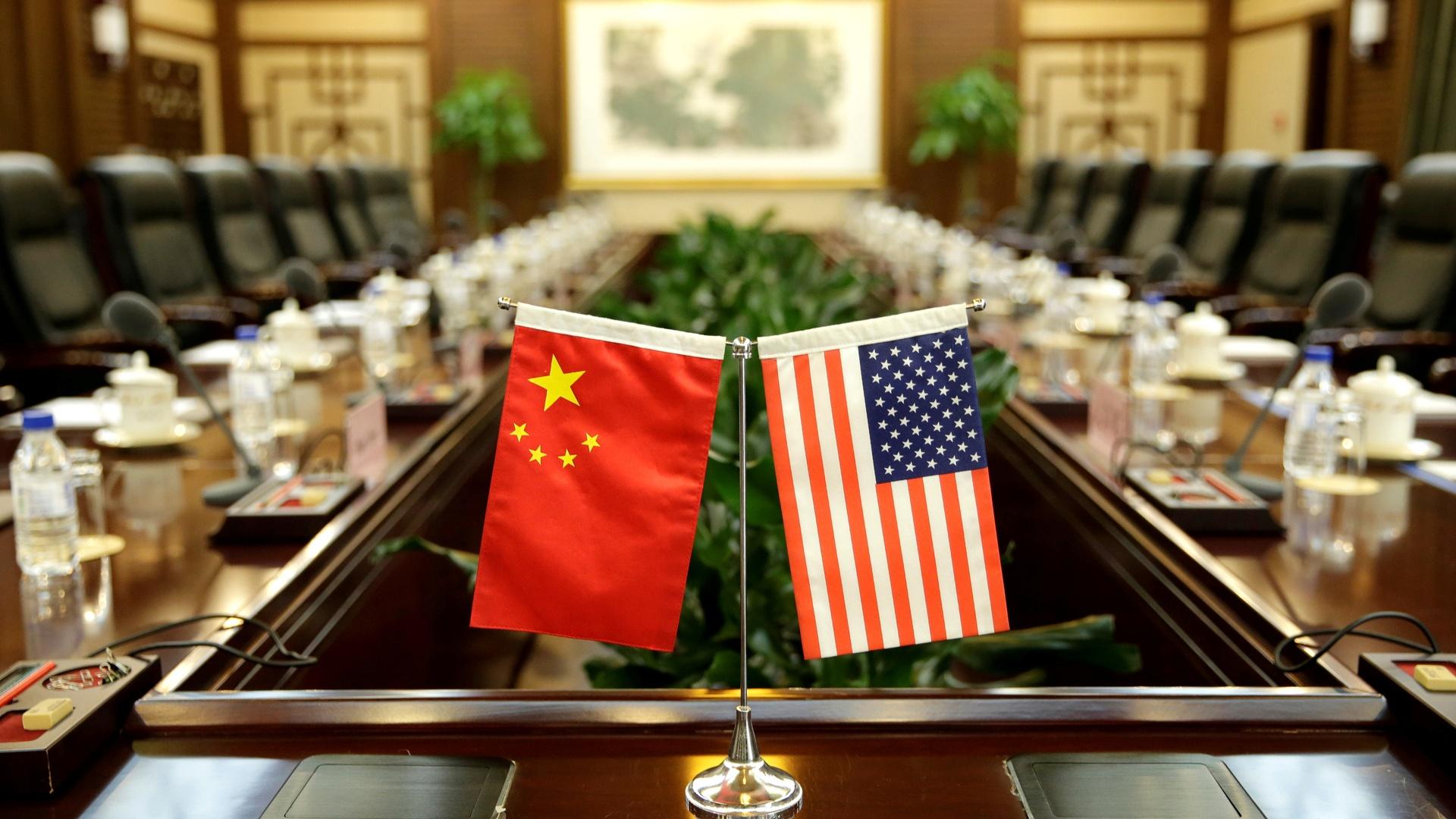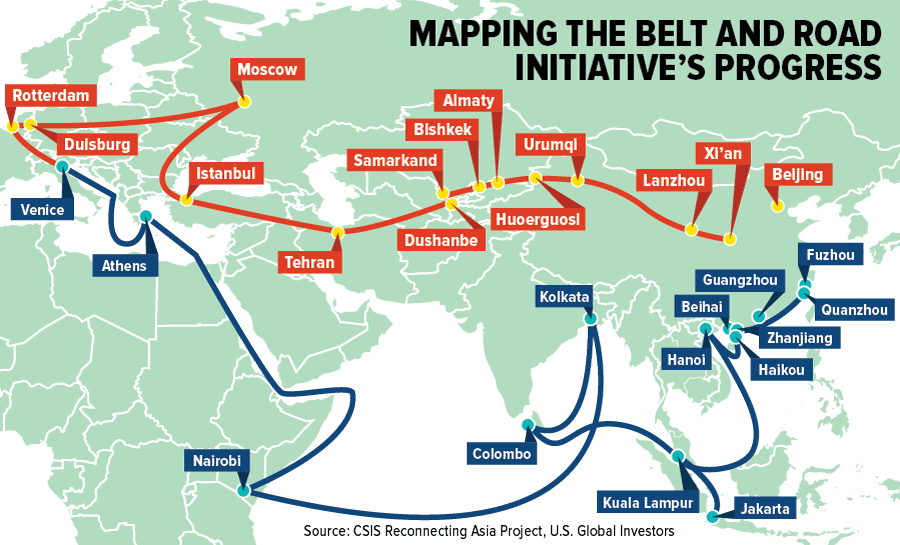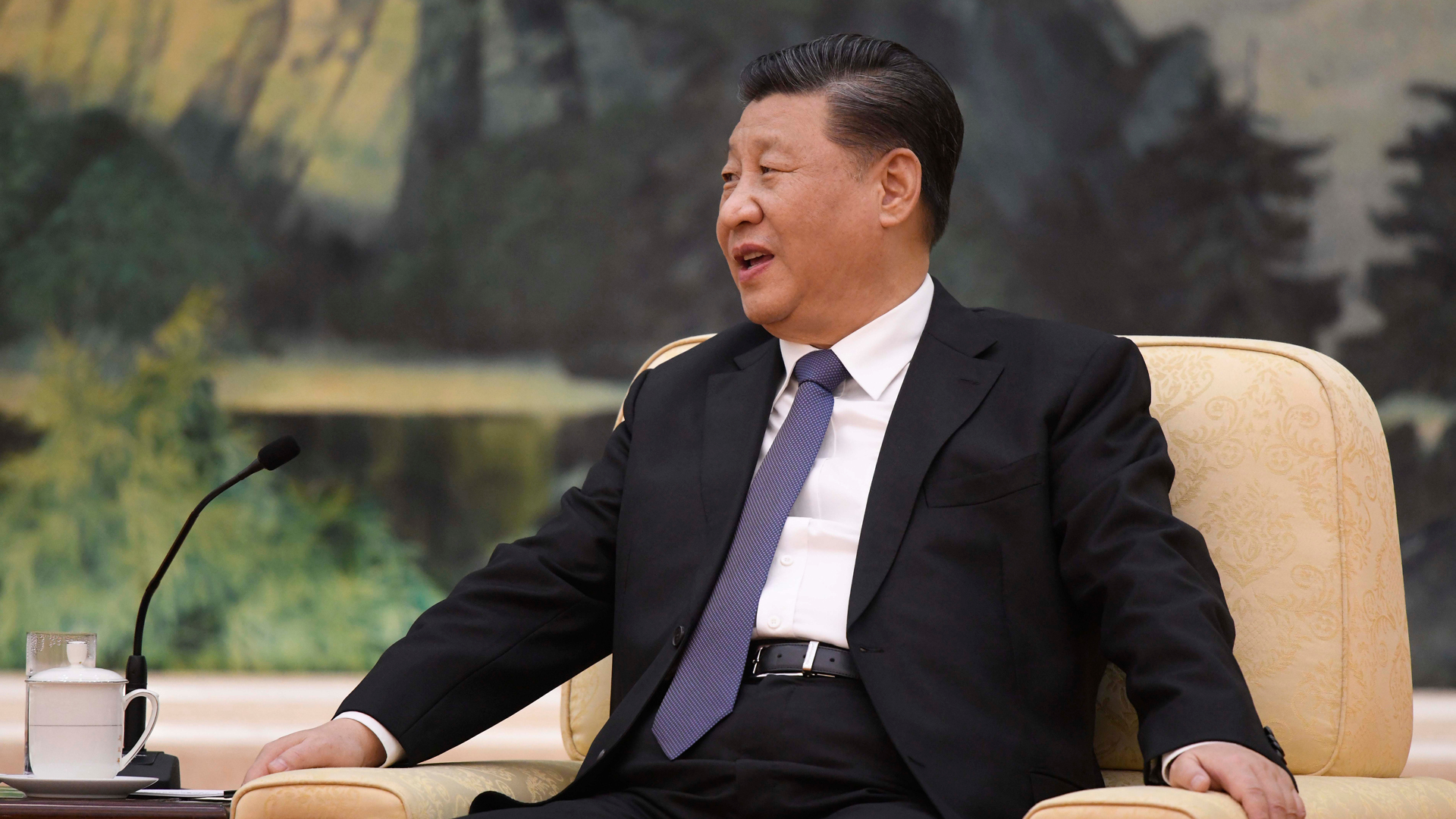There has been an important development that has attracted the attention of international relations researchers. George Kennan wrote an 8,000-word report, The Long Telegram, which he sent to the US Department of State in 1946, addressing the alarming behavior of the USSR administration. The version of this report written against China was published by the famous research organization Atlantic Council. The report was defined as, “one of the most meticulous reviews of China’s geopolitical strategy to date, and an extraordinary new strategy document that gives advice on how the United States should develop policies against a new rising superpower.” Within the scope of this analysis article we will discuss these questions; could The Longer Telegram shape the policies implemented by the United States against China, what are the recommendations of the report to decision-makers, can the policies applied to the USSR during the Cold War be applicable to China, what are the criticisms of the experts against the report, on what basis does China base its global strategy?
What Does The Longer Telegram Recommend?
According to the author of The Longer Telegram; The most important problem facing the United States in the twenty-first century is the rise of China, which has become increasingly authoritarian under Xi Jinping. Because of the rapid development of the Chinese economy and the size of its military, the speed of its technological advancement, and a worldview radically different from that of the United States, it has become a threat to the national interests of the United States in the future. (Messieh, 2021) This problem, which emerged over time, began to surface with Xi Jinping. According to the document, Xi, unlike his predecessors; eliminates his political rivals, fosters the nationalist movement and receives public support behind it, thus assimilating the minorities in the country and preventing a future rebellion against him, and encouraging the police state by ruling the country with an iron fist. In connection with these developments, it expands the authoritarian system in China and opens new bases abroad by developing its military capacity. According to the author, in the light of all these developments, China has ceased to be a status quo state. It is now referred to by the US elites as a revisionist state. At the same time, it is observed that China, which has expanded its political goals on a global scale, will surpass the USA in the next decade due to its economic rise. In this context, the greatest threat of the 21st century for the USA is described as the Chinese Communist Party (CCP) led by Xi Jinping. So what are the steps the CCP wants to take for global leadership;
1. Leaving the USA behind technologically and economically,
2. Undermine the role of the USA in the global financial systems and the position of the dollar as the global reserve currency,
3. To achieve a military superiority sufficient to deter the United States and its allies from intervening in any conflict over Taiwan, the South China Sea or the East China Sea.
4. By weakening the global power of the USA, to make its allies begin to doubt it,
5. To reduce the severity of the pressure from the West by taking Russia as a strategic partner,
6. To transform China’s Road and Belt Project (BRI) into a geopolitical and geoeconomic structure that nurtures its own political ambitions and helps establish the future world order,
7. To discredit international norms in a way that suits their national interests, using China’s increasing influence on international institutions.
After the author listed them, quoting the famous Chinese philosopher Sun Tzu, “It is of utmost importance to attack the enemy’s strategy in war.” he says and adds; The US must negate the strategic goals of revisionist China by applying the same tactic. He states that this will primarily pass through drawing a road map to protect the interests of the USA and its allies. Therefore, he submitted a 12-point resolution to the American government. (Messieh, 2021)
1. The economic and technological superiority of the USA should not be lost.
2. The role of the US dollar in the global financial system must be preserved.
3. Conventional military deterrence should always be kept at the highest level and the balance in the number of nuclear warheads between the parties should not be disturbed.
4. China should be prevented from actually expanding its borders, especially its unification with Taiwan.
5. Strengthen and expand international alliances and partnerships,
6. It must protect the liberal world order and uphold democratic values more than ever.
7. To preserve the long-term national power of the USA; It should strengthen its economic, military, technological and human capital.
8. In order to prevent China from realizing its global sovereignty policies, it should draw “red lines” that it cannot overcome under any circumstances and put it under pressure. In this context, the new national security policy should be adopted and it should be shown to China that if its behavior exceeds the border, retaliation will be made.
9. Strategic regions and targets that are important but not vital for the USA should be determined; Secondary competition areas should be created against China.
10. Areas of mega-threat level should be identified for both parties and cooperation should be established on these issues. (Climate change, global pandemic, nuclear security etc.)
11. A global ideological war must be waged in defense of political, economic and social freedoms against the authoritarian state capitalist model of China.
12. In order to fully realize the above strategy, the United States agreed in detail with its main Asian and European allies; it must direct all their economic, military and technological strength to the common defense of the liberal international order led by the USA.
In the continuation of The Longer Telegram, the author explains what the red lines mentioned above are, lists national security issues for the United States, states in which areas the strategic war should be continued, and explains in which areas the two superpowers should continue to cooperate. Finally, it highlights how important it is for the United States to cooperate with its allies. So much so that, according to the author, the United States should develop areas of cooperation with Russia and deprive it of one of China’s (currently limited) reliable allies; He states that it can be considered as a great development for the US administration to win the strategic war. As a result, the author believes that if this comprehensive strategy text is implemented, Xi Jinping will be defeated and a status quo from within the CCP will be fulfilled. Indeed, at the end of such a strategic war, in the long run, the Chinese people themselves may begin to question and rebel against China’s centuries-old proposition that the ancient civilization is destined for an authoritarian future forever. (Messieh, 2021)

Relatives of revolutionary martyrs take part in a parade in Tiananmen Square in Beijing to mark the 70th anniversary of the founding of the People’s Republic of China. Photograph: Greg Baker/AFP/Getty Image
What Are The Critics Directed To The Report?
According to The Longer Telegram: the rise of the People’s Republic of China as a big challenge as the rise of the USSR in world politics. But contrary to what the author thinks, Chinese society does not have the weaknesses of the Soviet Union. Social ethnic differences are almost out of the question, and the Chinese have access to wealth and markets that the Soviets could never have imagined. While the USSR reached its 40% potential in the American economy even in its supreme days, the People’s Republic of China is about to surpass the USA in this regard. The challenge posed by Beijing may be much more difficult than posed by the USSR. Therefore, containment and its policies are no longer a realistic solution. The aim of the American grand strategy, then, is not to overthrow the Chinese Communist Party (CCP) or to break up the government of the People’s Republic of China; It should try to persuade the Chinese elites to take secondary roles in the US-led liberal international order. But this now seems quite impossible. Because Xi Jinping came to the position of president after observing the effects of certain social processes on the Chinese Communist Party. Events such as the 2008 Tibetan uprising, the 2009 Urumqi uprising, the social media organizations after the 2011 Wenzhou Train accident, and the 8th Charter Dissenting Manifesto seem to have convinced the Chinese elites of the need to govern society in a more authoritarian structure. As a result of all this, we can say that the CCP, which wants to consolidate its dominance over Chinese society, brought Xi Jinping to the party leadership with a specific purpose. Therefore, it seems almost impossible to say that bringing a different person to the presidency will create a retroactive change in China’s state policies. (Greer, 2021)
Moreover, some of the “strategies” mentioned in the document are almost like wish lists. There is no political-economic basis for its realization. Some of those; To increase “economic infrastructure” spending; To reduce national debt without “creating an inflation crisis”; Building “a new political consensus on the future-scale of immigration”; To open the American economy to free trade with the democratic world; “Transforming the economies of the US, Canada and Mexico into one integrated North American economic entity”; and resolving, or at least reducing, “the serious divisions now prevalent in America’s political system, institutions, and culture”. (Greer, 2021) This is not a strategy, it’s a wish list. The report does not give us any information on how to achieve these. Moreover, even if such a strategy is put into practice, there is currently no partnership between two rival major parties that would approve such marginal changes. In addition, the move to develop good relations with Russia, which is mentioned as an important point in the document, seems impossible while Joe Biden accuses Russia as one of his primary enemies. As a result, The Longer Telegram offers many recommendations, but few seem logical and feasible. Nevertheless, it can be considered as an important study to examine the problems between the two countries in detail.
Changing Political Dynamics and Chinese Policy
US President Joe Biden revived the old Cold War and post-Cold War doctrines of democracy and human rights as a result of their rivalry with China. The Chinese, unlike the Soviets, have little interest in participating in this ideology debate. Of course, the Beijing regime calls itself Marxist-Leninist and becomes increasingly repressive at home. However, it is hardly interested in applying its political values beyond its national borders. In fact, the motivational power of China abroad are two concepts that contain no ideological ideas, they can be described as geography and trade. It must be because the geography in which the USA is located contains almost no problems for itself; US elites have been paying attention to issues such as freedom and human rights for decades. However, the Chinese, whose geography is much more problematic, determine their strategies on the map in order to gain geopolitical advantage and want to develop the policy that China calls “common destiny” together with the countries that cooperate with it. This is the key to the Belt and Road Initiative. Today’s world is a digitally connected global trading system with which China is on its way to dominate and manipulate. Since 2014, China has been the world’s largest trading country. Half of all countries trade with China as much as they do with the United States. Even the great allies of the United States (Japan, Germany, South Korea, etc.) may soon recognize China as their biggest trading partner. In these circumstances, China is in no way concerned with whether Germany and Japan are democratic or if they respect human rights. If we take Pakistan; It seems almost impossible for Pakistan government to condemn China for the genocidal treatment of millions of Muslim Uighurs due to the huge economic and infrastructure investments in Pakistan, which is affiliated with the Belt and Road Initiative. Likewise, Germany plans to best trade with China while allowing the completion of a second natural gas pipeline built by Russia. Perhaps even European values may now be renewing itself in line with its realist interests. The Chinese believe that they promote harmony rather than enlightenment. After all, China’s tribute system in East Asia from the mid-14th to the mid-19th century caused fewer wars than the balance of power system in Europe. While China says that it will bring prosperity to the whole world, especially with its belt and road project; At the same time, it connects the countries it works with with a new tribute system model and obtains important privileges in these countries. (Greer, 2021) However, it is clear that China’s values such as trade, money, common interest, common fate, and not having moral norms have been embraced by the international community at first, but it is now in a deadlock. As a matter of fact, the explicit extortion of the countries as a result of the unlimited credits provided within the scope of the Belt and Road project forces many countries to withdraw from the project and encourages China to stay away from this brutal attempt. At this point, the Chinese government should also renew and develop its policies. As a result, although the US and Chinese relations are extremely complex; It seems impossible to say that the two countries have a clear strategy against each other (apart from deterrence policies). As a matter of fact, we are at the beginning of a long competition process. I think that as the global competition and conflicts of interest between the two countries deepen, more clear and predictable policies will be produced.
BIBLIOGRAPHY
Greer, T. (2021, March 8). The “Longer Telegram” About China Is Fatally Misplaced. Foreign Policy. https://foreignpolicy.com/2021/03/04/china-us-relations-longer-telegram-response/
Kaplan, R. D. (2021, March 2). The One-Sided War of Ideas With China. Foreign Policy. https://foreignpolicy.com/2021/03/02/the-one-sided-war-of-ideas-with-china/
Messieh, N. (2021, April 22). The Longer Telegram: Toward a new American China strategy. Atlantic Council. https://www.atlanticcouncil.org/content-series/atlantic-council-strategy-paper-series/the-longer-telegram/#executive-summary














